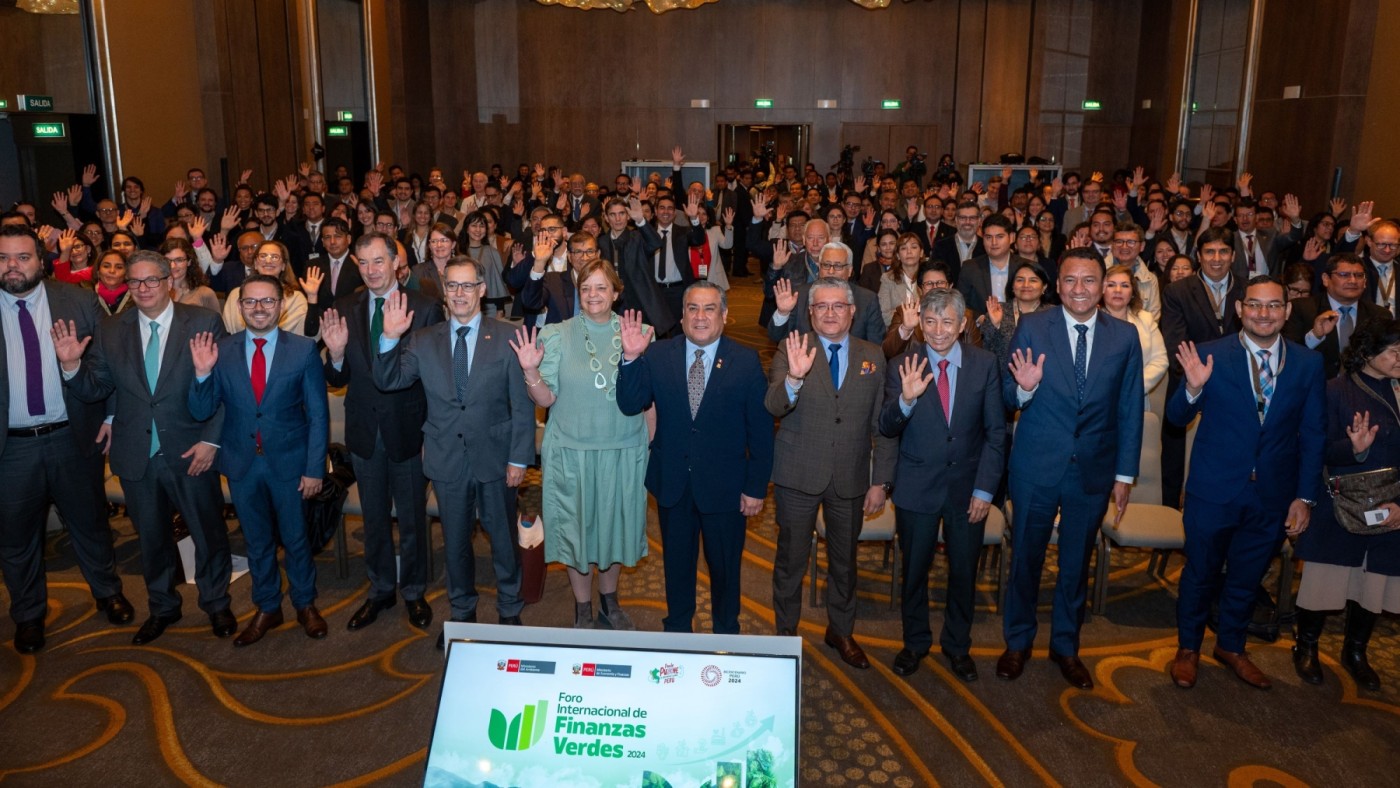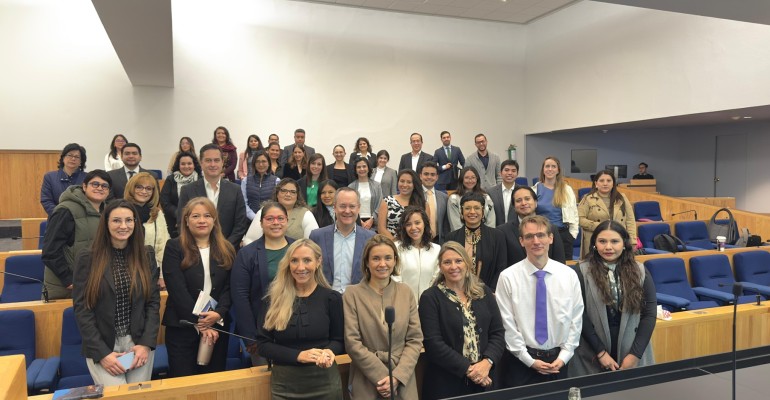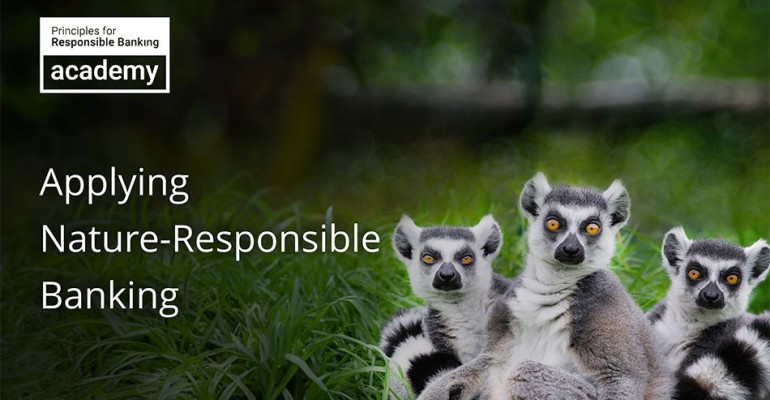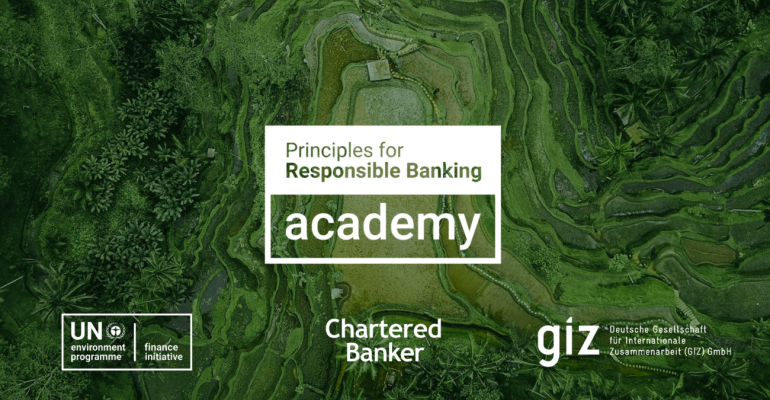The Ministry of Environment and the Ministry of Economy and Finance of Peru organized the FIVERDE that brought together over 250 experts from 18 countries in Europe, Africa, the Americas and Asia.
Description:
The necessary transition to sustainable economic pathways can only be achieved with resilient financial systems allocating capital accordingly. Therefore, green finance is an important part of addressing climate change and degradation of ecosystems, while also providing opportunities for innovation, improved economic competitiveness and safeguarding societal welfare. To exchange on these topics, the International Green Finance Forum (FIVERDE) was held in Lima, Peru, from 16 to 18 September 2024, bringing together key actors from the public and private sectors and international organizations. This event was supported by the European Union, the German Federal Ministry for the Environment and Consumer Protection (BMUV) and the German Federal Ministry for Economic Cooperation and Development (BMZ), implemented by GIZ.
Opening the conference, high-level government representatives from Peru expressed a strong commitment to the promotion of green finance. The President of the Council of Ministers, Gustavo Adrianzén, emphasized that FIVERDE reflects the Peruvian government's commitment to promoting sustainable development and the fight against climate change. As highlighted by the Minister of the Environment, Juan Carlos Castro, part of this commitment is the Green Finance Roadmap, an instrument with which the government hopes to mobilise 5.8 billion USD towards sustainable projects by 2030. José Arista, Minister of Economy and Finance, affirmed the importance of green finance in balancing economic growth, environmental protection, and the population's well-being.
Considering the staggering innovation taking place across the globe and across stakeholder groups, FIVERDE’s attendees from 18 countries significantly enriched the discussions. More than 250 representatives from the public sector, the private sector, multilateral organizations, and academia exchanged experiences, lessons learned, and practical tools to expand and replicate initiatives both nationally and internationally. Among others, a representative from Indonesia shared experiences in developing financial mechanisms to achieve both economic development and natural resource conservation, emphasizing the importance of engaging local communities and the private sector. Representatives from commercial banks echoed the call for collaboration between the public and private sector, also stressing the need for deeper understanding of sustainability risks and the capacity building that is required for this. A representative of the European Union highlighted the necessity of interoperability between taxonomies and regulatory frameworks to enhance collaboration and effectiveness in sustainable finance.
Throughout the diverse sessions and working groups, participants engaged in meaningful exchanges on a wide range of topics, including biodiversity credits, challenges related to green finance taxonomy development and implementation, and capacity building efforts and needs. They emphasised future challenges and trends, including the need to foster interoperability among regulatory frameworks and taxonomies, enhance transition planning, and strengthen financial institutions' capacities and cultural shifts.
Partners:
The forum was supported by various national and international stakeholders, including the European Union, World Bank, CAF, BID, WWF, GGGI, the German Federal Ministry for the Environment and Consumer Protection (BMUV), the German Federal Ministry for Economic Cooperation (BMZ), the Swiss embassy in Peru, International Climate Initiative, BIOFIN and Green Fiscal Policy Network of UNDP.




